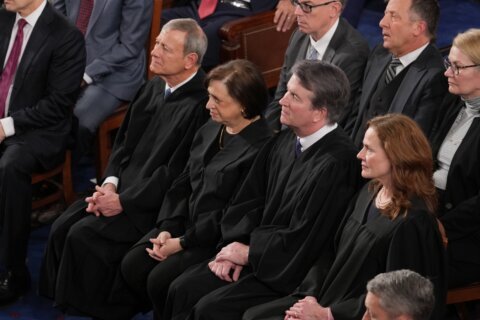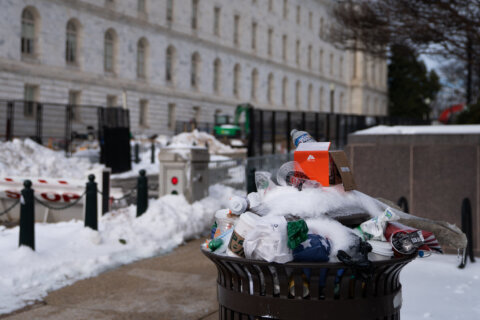D.C. lawmakers will vote to confirm Christina Grant as the new state superintendent of education next month, but this week, she took questions from lawmakers about how she plans to run the city’s public and charter schools.
Mayor Muriel Bowser’s appointee has been leading the D.C. Office of the State Superintendent of Education (OSSE) in an acting capacity since June and hails from the Philadelphia school system.
Multiple former colleagues, including Superintendent of Philadelphia Schools William R. Hite, testified to Grant’s talent, proficiency and willingness to listen.
However, some residents and educators expressed concerns about someone from outside the D.C. school system taking the top job.
Multiple topics were discussed, including the challenges for teachers and students navigating the emotional toll and learning loss associated with the pandemic, school staffing shortages, transparency and improving OSSE’s interactions with parents and guardians.
Addressing cultural issues as superintendent
Two council members asked Grant how she planned to address cultural bias and racism in standardized tests.
“What’s beyond the test is the actual teaching, so I think we can engage in a conversation around ensuring assessments are high quality and that they’re culturally responsive,” Grant responded.
She said she doesn’t have concerns when it comes to the District’s PARCC (Partnership for Assessment of Readiness for College and Careers) assessment, which she’ll keep in place for the next school year.
Scott Goldstein, a former teacher and director of the D.C. teacher advocacy organization EmpowerEd, testified that educators are concerned about the bias inside PARCC tests and have formed a working group to address those concerns.
“We do want to take the time to look at ways we address cultural bias in a test that, for example, PARCC is not being administered in any other state in the country,” Goldstein said.
Bowser appointed Grant to lead OSSE, which a recent audit found had skewed data reporting by its local education agencies, also known as LEAs, and provided limited access to that data.
“OSSE has to make sure that we’re meeting LEAs where they are, so that they produce the data that we need — so we can provide the information to the public,” Grant said.
The STAR Framework ratings are based multiple types of data to measure a school’s performance. The ratings are based on information collected from and provided by schools. However, the rating system is still under review.
Calls for more transparency
Shannon Hodge, founding executive director of the D.C. Charter School Alliance, testified that more transparency is needed around OSSE data.
“I think that there’s a great tension right now between wanting to make sure we have data that are available to help guide our decision-making and what current assessment looks like,” Hodge said.
“I know that the STAR Framework is going through renovation and review and I think it’s important to hear from the stakeholders, family, students, staff, and leaders around what works and what doesn’t work.
Councilmember Robert White asked Grant a question he said he had heard from students regarding support structures within schools.
“How will you increase queer-affirming learning spaces within our public and public charter schools,” White asked.
“We are at a state now where we have to make sure that the identity of every single child for the intersectionality of that identity shows up in their schoolhouse … so the work is around what are the needs of the child, and how do we make sure that we do not lose a child while they are going through the process of understanding their own identity,” Grant responded in part.
The council will vote on Grant’s confirmation likely some time next month, according to the office of D.C. Council Chairman Phil Mendelson.








